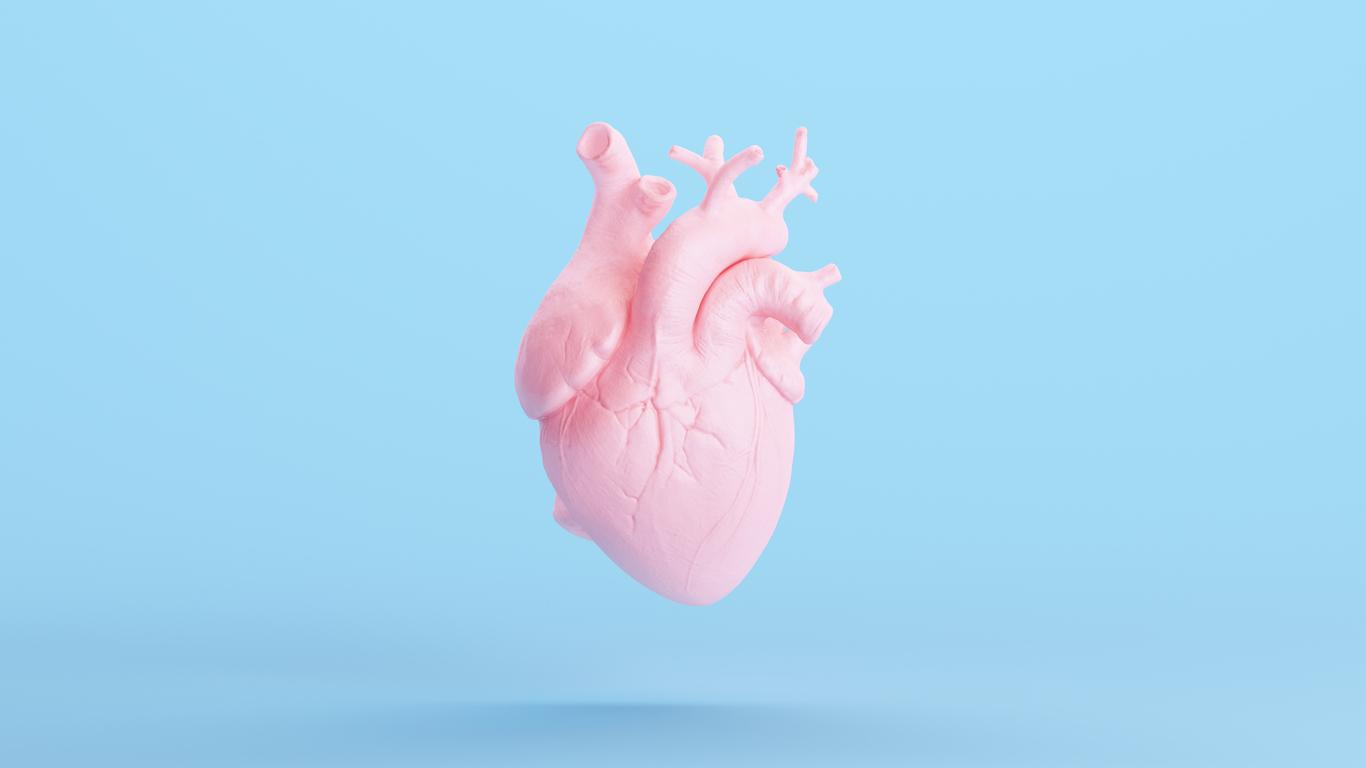
In heart failure, the heart slowly becomes overloaded, often without the patient noticing. What causes heart failure and what can be done about it?
Heart failure is a condition in which the heart no longer pumps blood properly. The tissues then receive too little oxygen and the waste products are not removed quickly enough. All organs will function less. A person with heart failure feels tired, weak and miserable and is not capable of much.
A poor pumping function of the heart can also cause fluid accumulation (oedema), for example around the ankles. Shortness of breath at night, for a while after you lie down, is also typical of heart failure. This is because the fluid that has fallen to the legs during the day flows back and ends up in the lungs, among other things. That people with heart failure have to get up so often at night to urinate is due to this same mechanism.
A failing circulation
Actually the problem is that the whole circulation is failing. Heart failure can also be caused by other circulatory problems, such as severe anemia. The pump still works, but the blood contains too few red blood cells to carry the oxygen.
Whatever the cause of the lack of circulation, eventually the heart becomes overloaded. It will try to pump the oxygen-poor blood around faster, but in the meantime it will also get too little oxygen itself. Heart and vessels are one system that functions poorly in heart failure.
Acute or chronic
Heart failure can be acute or chronic. Acute heart failure occurs in the event of a severe heart attack or a heart rhythm disorder and is an emergency. The patient has a lot of fluid in the lungs and is choked to death due to lack of oxygen.
In principle, chronic heart failure gives the same symptoms, but then they develop very gradually. Chronic heart failure can worsen suddenly.
Chronic heart failure is common, especially in the elderly. About 12 percent of the over-75s suffer from it.
Suppleness is lost
The vast majority of people with heart failure have a problem with the heart itself. It may have been damaged by a heart attack, causing muscle tissue to be lost. Or because of years of high blood pressure, which affects the quality of the heart muscle tissue. The heart muscle then becomes interleaved with connective tissue, as it were.
As a result, not only the pumping power is lost, but also the flexibility. During diastole (the filling phase) the heart can fill up less well and therefore pump out less.
Sometimes it’s just ‘wear’
Less common damage to the heart is the result of aging. Because heart failure is such an insidious process, many people often have it without realizing it. They don’t feel so fit anymore, but think ‘it’s part of old age’.
Usually not repairable
A damaged heart is usually beyond repair unless it involves the valves. But the symptoms of heart failure can be treated well: with medication, and by learning to live with heart failure wisely.
Because people almost never get a bad heart at a young age, our body has not developed a strategy to deal with this. The body even reacts very stupidly to a weak heart. It acts as if there is something going on that can occur in young individuals, namely a major hemorrhage. Of course, our ancestors regularly ran that risk in fights with each other or with animals for which they were a tasty snack.
Too little oxygenated blood
If the system of blood vessels has partially emptied, the circulation also falls short: the tissues do not receive enough oxygen-rich blood, because there is too little blood in the vessels. The body then produces stress hormones that cause the vessels to constrict, the kidneys retain fluid and the heart is rushed: all to keep enough pressure in the system to supply the brain and heart with enough oxygen.
That works after a bleeding, but with a weak heart it is counterproductive. As the vessels narrow, the pressure against which the already weak heart has to pump rises. The moisture that is retained ends up in the tissues; there it hinders the delivery of oxygen to the cells.
Car with worn engine
It also gets into the lungs, making breathing more difficult (the airways narrow due to swelling) and making it harder for oxygen to get into the blood. Because breathing takes more energy, more oxygen is needed.
And as for the heart itself, it’s like someone pressing the accelerator pedal hard on a car with a worn-out engine. It wears even harder and anything can break. For example, it can cause a heart rhythm disorder.
In any case, if the heart starts beating quickly, it pumps less effectively. It is better for the heart to beat slowly and relax well in between, so that it moves more blood. In addition, the coronary arteries of the heart receive fresh blood when the heart muscle relaxes
Drugs and Treatment
Fortunately, the GP or cardiologist can counteract many of these adverse reactions with a few cleverly chosen medicines. There are diuretics to drain the fluid, beta-block inflammation of the heart muscle or the heart valves. The heart can also malfunction due to an arrhythmia, such as atrial fibrillation. The heart failure can then be (partially) eliminated by treating the arrhythmia.
Even those who have not previously had problems with their heart can develop heart failure later in life. That’s just ‘wear and tear’. You can reduce the chance of it (or the complaints caused by it) by not smoking, by exercising a lot, and by keeping your blood pressure, body weight and cholesterol low.
But heart failure is also part of cherry to counteract the action of the stress hormones and ACE inhibitors and A-II antagonists to eliminate the vasoconstriction. In addition, treatment is sometimes possible, such as in the case of an arrhythmia or a valve deficiency.
But above all, someone with heart failure must learn to live sensibly. Understand how it works and where the complaints come from. You need to know what you can and cannot eat and drink (and when), how much you should and can exercise, and so on.
You should also weigh yourself regularly and know that a rapid weight gain (two pounds in a few days) indicates that you are retaining fluids and that you need to take an extra water pill. All these things are best learned in the special heart failure clinics that many hospitals have today.

















